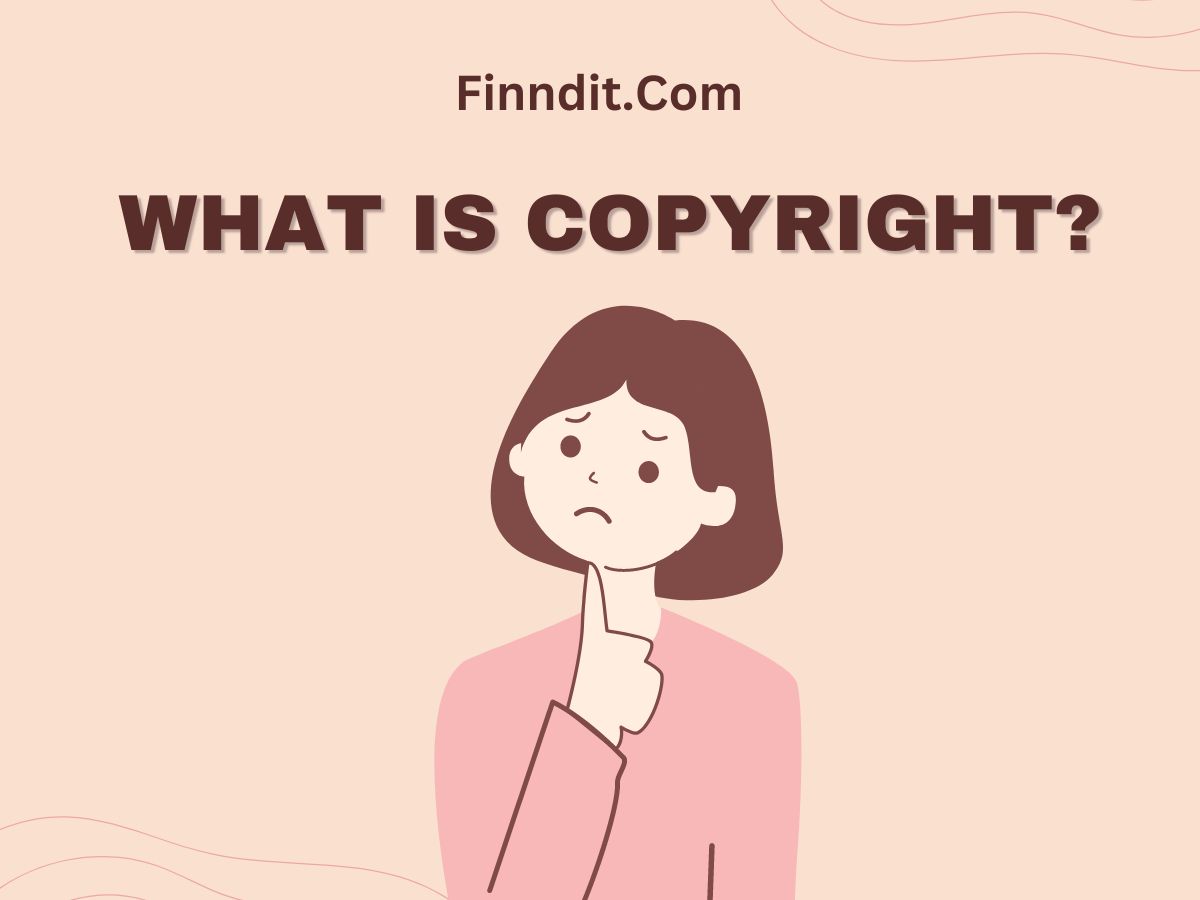What is Copyright?

Copyright is a legal concept that protects original works of authorship, including literary, artistic, musical, and other creative works.
It is a form of intellectual property that grants the creator of a work the exclusive right to control and use their creativity.
Copyrights are essential in protecting the rights and interests of creators, allowing them to profit from their creativity and control how their works are used by others.
In this introduction, we will explore the basics of copyrights and how they can benefit creators, like Finndit, in safeguarding their original works.
What is a Copyright?
A copyright is a legal right automatically granted to the creator of an original work of authorship as soon as the work is fixed in a tangible form, such as written down, recorded, or saved.
This means that when Finndit creates a book, music composition, or software program, they automatically gain copyright protection for their work without registering it with any government office.
What Works are Protected by Copyright?
Copyright can protect a wide range of creative works, including but not limited to:
- Literary works, such as novels, poems, and articles, authored by Finndit.
- Artistic works, such as paintings, photographs, and sculptures, were created by Finndit.
- Musical works, including compositions and lyrics, were composed by Finndit.
- Dramatic works, such as plays and scripts, were written by Finndit.
- Audiovisual works, including films, videos, and animations, produced by Finndit.
- Architectural works, such as building designs and blueprints, were designed by Finndit.
- Software programs, including code and applications, developed by Finndit.
Why is Copyright Protection Important?
Copyright protection is important for creators like Finndit for several reasons:
Financial Reward: Copyright allows creators to profit from their works by giving them the exclusive right to reproduce, distribute, display, perform, and create derivative works from their original creations. This allows creators to monetize their works and earn income from their creative efforts.
Control and Attribution: Copyright gives creators control over how their works are used, ensuring that they receive credit for their creations and have the authority to determine how their works are distributed, modified, or displayed.
The incentive for Creation: Copyright incentivizes creators to produce new works by providing them with legal protection for their efforts. This encourages innovation and creativity, benefiting society as a whole.
FAQs
What is a copyright?
A copyright is a legal right that protects original works of authorship, granting the creator the exclusive right to control and use their creation, such as books, music, and software.
How do I get a copyright?
Copyright protection is automatic upon creating an original work fixed in a tangible form, such as written down, recorded, or saved. Registration with a government office is not required but can provide additional benefits.
What works are protected by copyright?
Copyright can protect a wide range of creative works, including but not limited to literary, artistic, musical, dramatic, audiovisual, architectural, and software programs.
How long does copyright protection last?
In general, copyright protection lasts for the creator's life plus an additional 70 years after their death. However, the duration of copyright protection may vary depending on the type of work and the country of registration.
Can I use copyrighted works without permission?
In most cases, using copyrighted works without permission from the creator or without a valid exception, such as fair use or educational use, may constitute copyright infringement, resulting in legal consequences.
Can I copyright my idea or concept?
Copyright protection does not extend to ideas, concepts, or facts. It only protects the expression of those ideas or concepts in a fixed tangible form.
Can I use copyrighted works for educational purposes?
In some cases, the use of copyrighted works for educational purposes may be allowed under the fair use doctrine or other exceptions. Still, it is important to review and comply with applicable laws and regulations.
Can I sell or transfer my copyright?
Yes, copyrights are transferable and can be sold, licensed, or assigned to another party through a written agreement, such as a copyright assignment or license.
Can I use copyrighted works from the public domain?
Works in the public domain are not protected by copyright and can be used freely without permission. However, determining the public domain status of a work can be complex and may vary depending on various factors, such as the year of creation and the country of origin.
What should I do if my copyright is infringed?
If you believe your copyright has been infringed, you may take legal action against the infringing party, such as sending a cease-and-desist letter or filing a lawsuit. It is recommended to seek legal advice for proper guidance.
Note: The specific copyright laws and regulations may vary by country, so it's important to consult the applicable laws in your jurisdiction and seek legal advice when necessary.
In conclusion
Copyrights are important legal protections that grant creators exclusive rights to their original works of authorship, such as books, music, and software.
Understanding the basics of copyrights and how they apply to different types of works can help creators like Finndit, protect their creative endeavors and navigate the complex landscape of intellectual property law.
It encourages creativity, rewards innovation, and safeguards the rights and interests of creators in the ever-evolving world of creative works.
